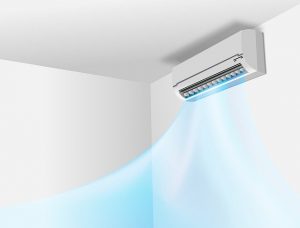Air conditioning is a typical machine or system that purifies, cools the air in a defined, generally sealed area through a series of refrigeration cycles where cold air is taken out and replaced with warmer air. Air Conditioning Melbourne is commonly used to cool down offices, homes, and other enclosed spaces, where the cold air outside is uncomfortable or otherwise makes the environment uncomfortable. Air conditioning is essential during the summer when the weather outdoors can get quite warm. The majority of homes in temperate climates already have air conditioning installed.
In humid climates, where the humidity makes the air feel too hot, air conditioning helps distribute the heat to an even more even region, thus making the temperature more comfortable. This is known as positive feedback air conditioning, wherein the refrigerant gas releases positive ions when it encounters negatively charged ions in the air such as moisture or dust. Positive feedback also allows the system to minimize the amount of energy wasted on energy production rather than just making the space more comfortable.
 Humidity is controlled in many ways. In some cases, the ventilation system will be set up so that fans are placed strategically throughout the space to push hot air downward. In other cases, an automatic shut-off system may be programmed into the system. When the humidity reaches a certain level, the shut-off system will shut down air conditioning until the air quality becomes balanced. In still other systems, a humidistat is used to monitor the humidity in the area.
Humidity is controlled in many ways. In some cases, the ventilation system will be set up so that fans are placed strategically throughout the space to push hot air downward. In other cases, an automatic shut-off system may be programmed into the system. When the humidity reaches a certain level, the shut-off system will shut down air conditioning until the air quality becomes balanced. In still other systems, a humidistat is used to monitor the humidity in the area.
The most important part of an HVAC professional’s job is to set up the proper airflow through the building’s air conditioning system. They’ll need to determine what kinds of fans are needed and where they should be installed. They’ll also need to make sure that the proper amount of insulation is installed in the building’s Air Conditioning Melbourne ductwork, or else the ACs would be too noisy to be comfortable. Other features to consider are how humid the climate is, how much wind the ACs would need to run efficiently, how much energy would be needed, and if the buildings’ temperatures fluctuate too much from the outdoor temperatures. With all this information in hand, an air conditioning professional will be able to design a plan for your HVAC system that will effectively cool and filter the air without wasting energy.
One of the more specific types of air conditioning is called a dehumidifier. This works by circulating water through a collection container, which captures excess moisture, along with any other airborne particles. Then the water is pumped back into the air conditioning unit. This is often the most economical way of cooling and filtering the air, but it does have a couple of limitations.
If you’re looking for an energy-efficient, low maintenance type of air conditioner, cooling units with a combination of heating and cooling elements may be the best option. These units are designed to be energy efficient while still delivering excellent cooling results. Some of these combination systems can even run on solar power.
When it comes to replacing an old unit or installing a new air conditioning system, don’t forget about ductwork. A good air conditioning professional will always recommend ductwork be completed according to local codes. This means that your HVAC system is properly insulated and sealed, reducing the risk of heating or cooling leaks. Remember, too, that there’s no better insulation than ductwork. Your HVAC contractor will be able to give you accurate information about both of these issues and more.
